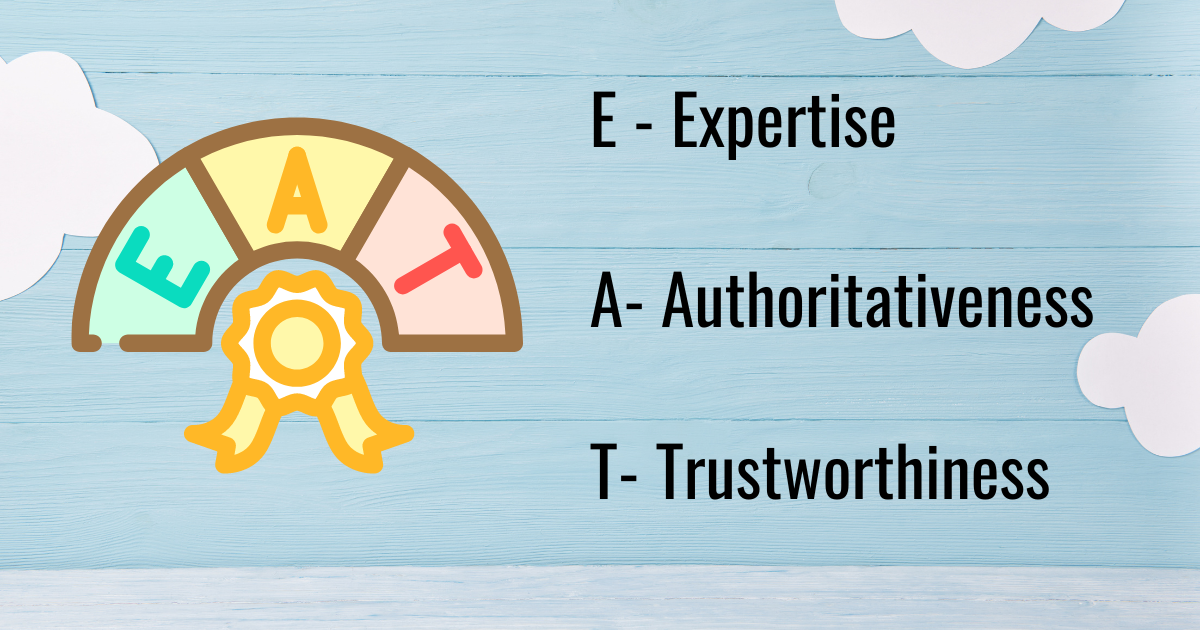Table of Contents
Do you know how search engines find relevant websites for each and every query?
When a user enters a query, search engines use algorithms to match the query with the most relevant pages, they look for that “query” or “keyword” in the website content. Then search engines rank all the web pages showing the user the most relevant results on top. But how does a web page come on top?
It usually depends on the proper keyword research. The main goal behind doing proper keyword research is to find out what your target audience is searching online. Without knowing the proper keyword, how will you know which keywords to target or how will you optimize your website?
So, keyword research plays a significant role in building your content for your target audience.
In this post, we will learn about doing proper keyword research for your website content. But before that, let us tell you what keyword research actually means.
What is Keyword Research?
Keywords are the words or phrases that users use to find information about their queries. For instance, you run an online store, where you have been selling various athlete shoes. So, when your audience searches-‘where Do I find Nike running Shoes’, they will see a variety of information about shoe stores popping up on the screen.
Now you must be wondering, whether they have been seeing your online store in the top 10 results. Yet, of course, ranking on top is much more than that but keywords are at the core of it.
So, if have done the right keyword research and used it in your content, there is a high chance that your search engine prioritizes your website.
Therefore, before crafting your content as per your target audience, you need to understand the search intent of your user. Then you use some tools (we are going to discuss it below) to find the right keywords that have low competition and high search volume. In this case, you type ‘Nike running shoes’ and you get a number of keywords related to this, which your target audience has been searching for.
But again, you need to have thorough research and check what kind of keywords your competitors are using. Based on tools and proper research, you build your content as per your audience.
How To Find the Right Keywords For SEO?
As said, finding the right keywords with higher volumes helps get good traffic to your website.
But how can you find the exact keywords that bring the right audience to your website?
We are going to look at certain important steps by using an example of a website that uses the keyword, ‘Nike Running Shoes.’ By following these steps you can get a better understanding of your target audience and optimize your content accordingly to improve SEO ranking.
Here is how a website has chosen the keyword through keyword research:
Step 1: Understanding user intent
Before searching for the right keyword, you need to understand what your target audience would be searching for. For instance, if your user is searching for Nike shoes, there can be various intentions behind the search. This includes, informational, commercial, navigational, or transactional.
Therefore, understanding the intent will help you create content that meets the needs and interests of your target audience. Such content provides them with the latest information on athlete shoes.
Step 2: Setting Clear Objectives for Your Website
Once you know that the prospect of athletic footwear is growing in the present scenario, you decide to set the tone of your website accordingly. By analyzing the relevancy of your keywords as per your website’s focus and theme. Don’t aim for broad keywords that are irrelevant to your website’s theme. For example you’re selling ‘shoes’ only and you’re focussing on keyword like ‘footwear’.
You need to tell what your website is all about. For instance, if your website sells footwear for athletes, then you need to look for the specific terms or phrases that your audience is searching for. By setting your website's objectives, you know who your target audience is and which topics you need to focus on.
Step 3: Use Tools for Keyword Research for Free and Volumes
You can take help from tools like Ubersuggest, Keyword Planner, SEMrush, or Ahrefs to find relevant keywords. Enter seed keywords in the tool to generate related keywords or phrases.
Many tools offer keyword research for free, like Google Keyword Planner. These keywords help in analyzing the user search pattern and suggest high-traffic and low-competition keywords. These keywords align with your website content and help in optimizing the website accordingly to improve ranking in the search engine. With thorough research, you can find keywords with decent volume and less competition.
So, experts advise striking a balance between search volumes and competition.
Step 4: Identifying Seed Keywords To Make Long-Tail Keywords
Seed keywords, or short-tail keywords are usually one-word or two-word keywords. In this case, shoes or Nike can be the keywords. They have high search volumes and can help in generating long-tail keywords, which play an integral role in SEO strategies.
Note: Long tail keywords are longer and specific keywords that have lower search volumes and lower competition.
These keywords help in generating ideas and content that your users are searching for. For instance, you can create a topic on ‘Top 10 Nike Running Shoes You Shouldn’t Wait To Buy.’ So, create a list of seed keywords as per your website’s focus.
Step 5: Long-tail keywords to attract a Niche Audience
The long-tail keywords are longer and specific phrases that give insight into accurate user intent. This helps in making higher relevant and engaging content that may have lower search volumes. This makes it easier to rank in the search engine.
You can search for relevant long-tail keywords using free keyword research tools. Make your content align with your target audience by focusing on user intent and the right long-tail keyword.
Step 6: Analyze Competitor Strategies
Firstly, identify competitors in your niche and industry that sell similar products as you do. By understanding the kinds of keywords your competitors have been using, you get insights about the opportunities or gaps you can eliminate.
For example, if your competitor is targeting ‘Nike running shoes,’ but you don’t see any specific keywords targeted like ‘affordable Nike Running shoes or so, you can simply use this opportunity. Based on this competitor analysis, you can make your website stand out by using some specific, targeted keywords.
Step 7: Make keyword groupings
Keyword grouping, also known as keyword clustering is a way of organizing a set of related keywords in a logical order. For instance, your generic keyword is shoes, so your keyword grouping will be sports shoes, casual shoes, formal shoes, and so on.
Based on the themes or topics of your website, create relevant keyword groupings and plan your website structure. You must prioritize the volume, competition, and alignment of your website goals. Strike a balance between search volume and competition to make your content relevant.
Step 8: Build your content and optimize it
Once you create a list of relevant keywords, create quality content incorporating all targeted keywords. Address their concerns, questions, and needs. Always avoid keyword stuffing because it affects SEO and user experience.
To optimize, use targetted keywords naturally in your website and create informative content that satisfies your target audience. Use those keywords in meta titles and descriptions too. Build internal linking and make backlinks.
With the above steps of keyword research, you can build content valuable to your audience with a proper SEO strategy that appeals to a specific audience. Don’t forget to evaluate your keywords every few months and keep adding them to the list.
Using the right keyword helps improve website performance. When you do keyword research, you understand the search intent of your audience. This helps in better content creation that stays for immeasurable times. When your website starts ranking, it becomes a trustworthy source where your target audience gets all sorts of information.
Can I Rank My Website Without Doing Keyword Research?
If you have been thinking about doing this, then congrats, yes YOU CAN, with other SEO techniques, paid ads, quality backlinks, proper social marketing strategies, and so on. But if you want to boost your ranking faster, keyword research plays a great deal in it.
You can boost website performance by effectively applying some strategies like making high-quality content, doing on-page optimization, building external links, making social media posts, and so on. However, with proper keyword research along with the above-mentioned strategies, your website ranking will be more effective. So, if you don’t do proper keyword research, you will miss out on some cool opportunities to improve your SEO strategies.
Here Is Why You Should Do Keyword Research?
To start with, Google gets more than a trillion queries every year from all around the globe. If you don’t focus on your website content, how do you expect your website to reach your potential customer?
Here is the importance of keyword research:
Understanding the needs and preferences of the target audience
Improve SEO and organic traffic for better ranking and visibility
Tailoring your content as per user intent
Develop fresh content ideas
Analyze competitor keywords and their content ideas
All in all, right keyword research helps boost your website performance.
Want To Boost The Digital Presence Of Your Website?
Building a high-quality website with proper keyword research is not rocket science, but it may turn out to be time-consuming. If you are someone who is looking for a reliable digital marketing agency to help you out with your website’s keyword research, get in touch with the experts at Master Bazar. We are proud to boast about our team of experts, who have helped many clients improve their website rankings.
Not only do we focus on website ranking, but we also focus on other aspects as well, including content marketing, website building, and whatnot!
So, don’t wait to grow your business; get started right away!
Author - Sunny J.
Sunny J. is a seasoned content writer with 8 years experience in web development, software development and digital marketing content across multiple formats. He leverages his skills in crafting curated content on the web technology and digital marketing. In his personal time, He enjoys reading article and being up-to-date on trends in marketing and website design.





